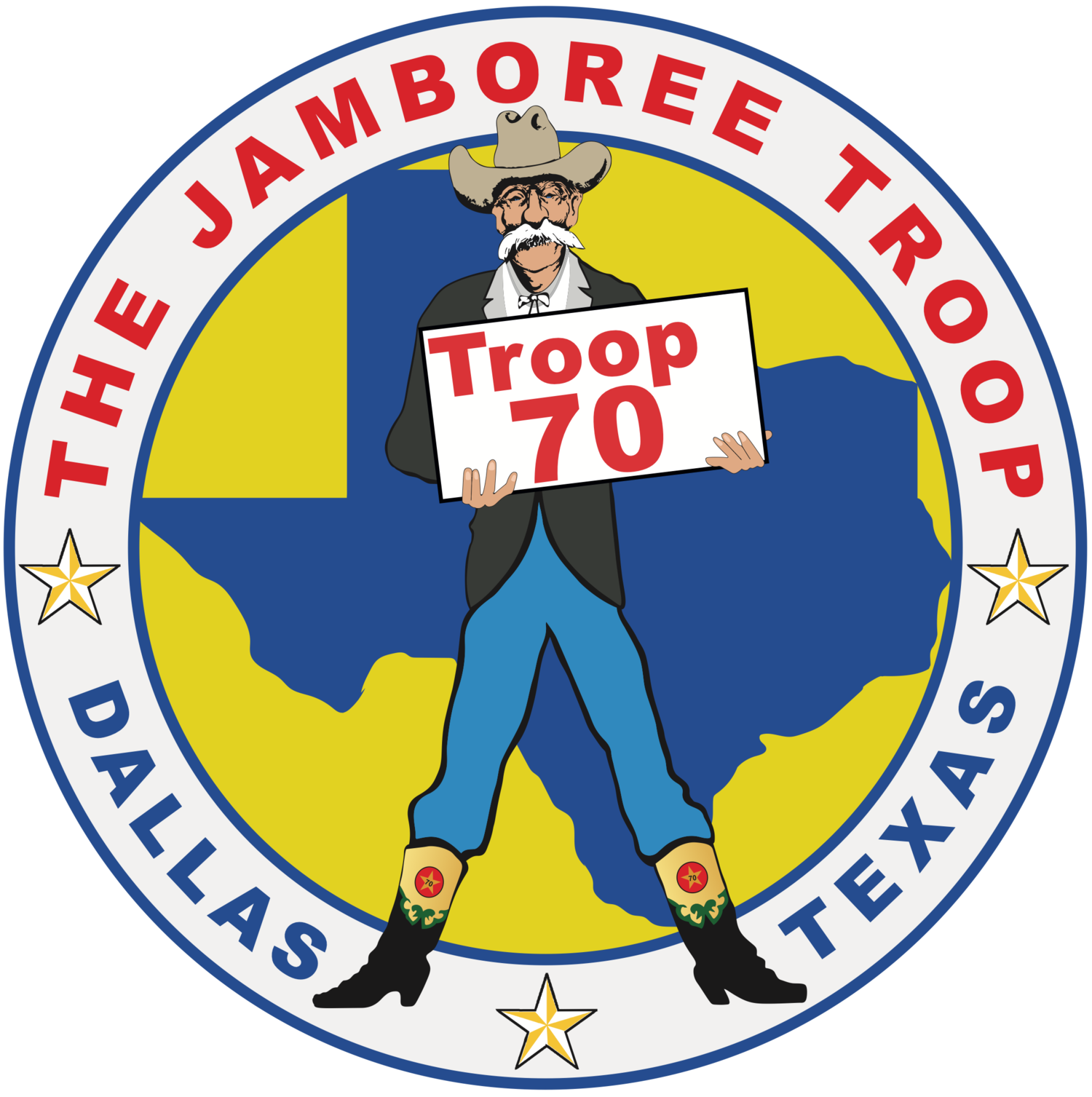
Parent Information
Advancement Expectations
Some of the most frequently asked questions at Troop 70 revolve around advancement. Why isn't my scout advancing faster? How do I go about getting merit badges? What is a Board of Review? The troop's approach to these issues derives from a central concept: the scout should take responsibility for the manner and speed at which he advances. This philosophy requires that the scout actively seek advancement throughout his career in scouting.
Rank Advancement
At the first four ranks (Scout, Tenderfoot, Second Class, and First Class), many of the training opportunities are provided by the troop’s Trail to First Class program (TFC), but the scout must attend meetings and campouts regularly and bring his scout book and other required materials to advance. Beyond the initial ranks to the honor ranks (Star, Life, and Eagle), advancement becomes more scout initiated and motivated. Therefore, in the first year or two, most scouts should focus on basic scout skills and should regularly speak with scoutmasters or staff scouts. They should advocate for themselves and present their books if they believe they are ready to demonstrate skills that may or may not have been covered in the regular sessions. After reaching First Class, the scout is responsible for initiating and completing merit badges and other requirements. Some merit badges can be earned at summer camp or at merit badge colleges regularly held by Circle Ten Council. In addition, non-required merit badges may be earned with registered counselors, who need not be uniformed leaders. The troop tries to maintain a list of qualified counselors, and you are encouraged to sign up if you have an area you would like to teach. Eagle required badges are generally signed off by uniformed leaders in the troop. The scout should identify and approach the counselor for a counseling session before commencing work on a badge. This process enables the scout to understand the requirements of the badge and the expectations of the counselor. The scout then performs the requirements independently and returns for discussion and sign off when he feels he has accomplished the requirements. Sometimes the scout may get final sign off the first time, but repeated attempts are not at all unusual. Once the scout has accumulated the necessary badges and met any other applicable requirements, he must participate in a scoutmaster conference and board of review to receive his next rank advancements.
Scoutmaster Conferences
At a Scoutmaster Conference, the Scoutmaster and Scout find a place to sit where they can have an uninterrupted conversation but still be in plain sight of others – to meet the BSA Youth Protection requirements. A typical Scoutmaster Conference lasts about 20 minutes.
The Scoutmaster Conference makes use of one of the methods of Scouting – adult association. Adult association provides a way for the Scout to have a variety of positive adult role models in his life. The Scoutmaster Conference is not a retesting of Scout skills. Instead, it is a discussion where the Scoutmaster and Scout get to know each other a little better and can discuss how Scouting values apply to their everyday lives.
Boards of Review
When a Scout has completed all of the requirements for a rank, he must appear before a Board of Review. A Board of Review for the ranks of Tenderfoot through Life consists of three to six members of the troop committee, usually including two non-uniformed leaders. A board of review for the rank of Eagle Scout is determined by local policy. It can be comprised of a combination of troop committee
